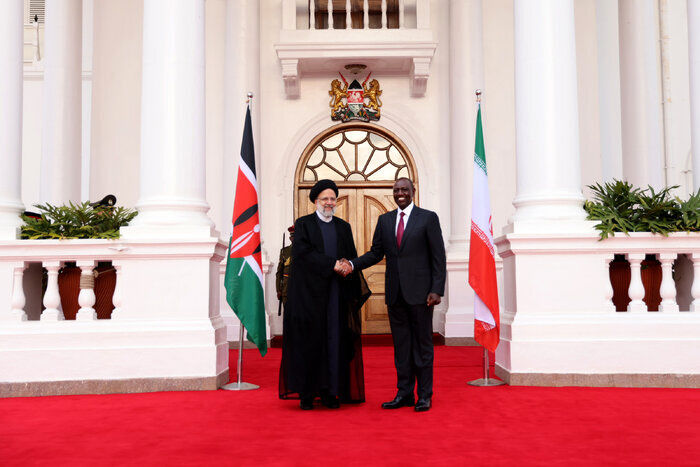The presence of rich natural resources, mines, significant energy reserves, precious metals, agricultural facilities and opportunities, cheap labor, suitable grounds for investment, a large market of one billion and 200 million people (one-eighth of the world), an economy of more than one trillion dollars, a large set of votes in international forums and many other factors have made each of the 54 African countries very attractive for investment in various fields.
Considering the cases mentioned above, Africa has become one of the “main priorities” in the foreign policy of many world countries. The regional powers of West Asia are also increasing their communication and cooperation with Africa. For example, Turkey has 44 diplomatic missions in Africa, and its exports to that continent are 30 billion dollars.
In addition to Turkey, the UAE, as a small Arab country, is one of Africa’s major trade and economic partners. That country’s airlines are connected with 20 African countries through Dubai Airport, and 24 diplomatic missions of the UAE are operating in Africa. This is while the Islamic Republic of Iran has only 18 diplomatic missions in Africa, and its share of the 1200 billion dollars African economy is less than 3 billion dollars!
Moreover, Africa is considered one of the “strategic arenas of competition” among the US, Russia, and China. In recent years, especially after the start of the Russia-Ukraine war and the resulting economic consequences, especially in South Africa, the competition between the US and China has intensified; However, North Africa is not excluded from this competition.
Currently, Russia’s relations with African countries have reached the highest level in recent decades. The US has increased investment in Africa’s energy infrastructure, and China has a special eye on Africa in the Belt and Road Initiative.
Today, this idea is clearly stated in Western, Eastern, and Arab research institutes and circles that in difficult international conditions where the crisis in the fields of economy, energy, raw materials, food resources, etc. is increasing, especially in the West, Africa is a “decisive region” and a “long-term option.”
Despite the existence of many opportunities and well-prepared grounds for investment and development of bilateral and multilateral relations in Africa, unfortunately, this continent has not received the attention of the foreign policy of the Islamic Republic of Iran in a “desirable” way.
According to what has been said, the recent visit of the President of the Islamic Republic of Iran to the African continent is a good “starting point” that will strengthen Iran’s relations with this important and strategic continent, especially in the fields of economy, industry, agriculture, and knowledge.
The official visit, which was carried out for the first time in the past 11 years, can be analyzed in two frameworks; first, analysis of the trip in terms of the three countries that the president of the Islamic Republic of Iran visited. Each of the three countries has “capabilities” that the Islamic Republic of Iran can use well. For example, Kenya is the third largest economy in sub-Saharan Africa after Nigeria and South Africa. Zimbabwe has the world’s largest gem mines (diamonds, gold, etc.). Uganda is one of the important poles of copper, tungsten, cobalt, columbite-tantalite, gold, phosphate, iron ore, and limestone in Africa and the world.
Second, its analysis in macro and continental dimensions, in the sense that after many years, the African continent has received serious attention in the foreign policy of the Islamic Republic of Iran, even though 84 percent of its trade is “extra-continental” and in recent years it has gained an important role in the field of foreign trade of regional and international powers.
What achievements and opportunities the visit of the president of the Islamic Republic of Iran to three African countries will bring is a subject whose dimensions and details are known and which is also discussed a lot. The critical point here is that Africa is seriously becoming one of the main priorities of the foreign policy of the Islamic Republic of Iran. This critical issue will definitely lead to good results and consequences in “strengthening the regional and international position” of the Islamic Republic of Iran and increasing the political weight and bargaining power of the Islamic Republic of Iran in the international arena.
In conclusion, it should be noted that Africa is considered one of the main centers of “anti-colonial and anti-imperialist struggles” in the world. Therefore, they have an understanding and dialogue convergence with the Islamic Republic of Iran. At the same time, this issue is a “strong point” and an essential driving force in developing the depth and scope of foreign relations with Africa. Moreover, the nature of the foreign policy of the Islamic Republic of Iran requires that the view of Africa should always be “special” and “strategic.”










0 Comments